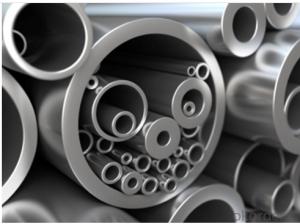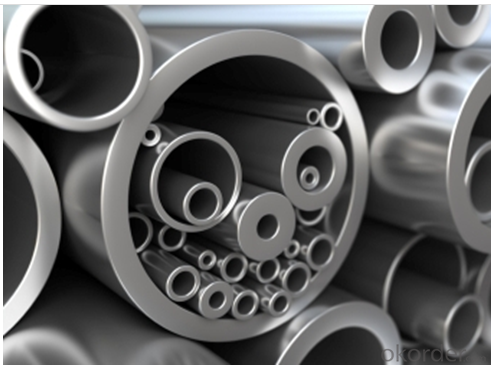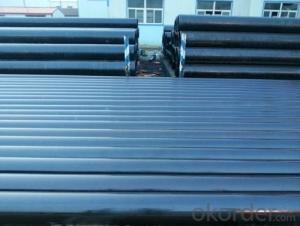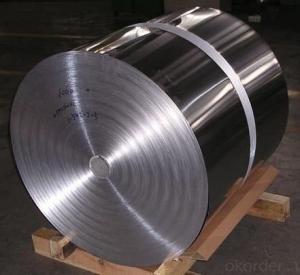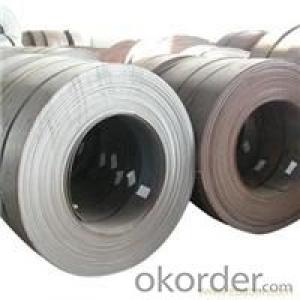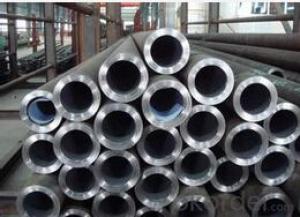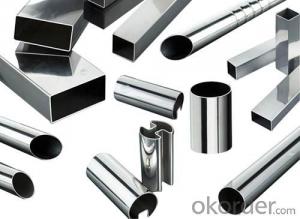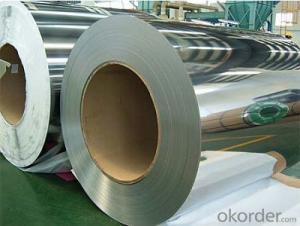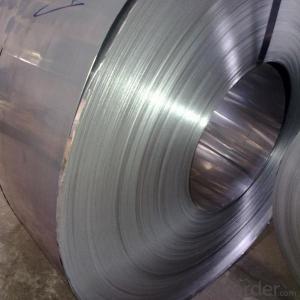201 Stainless Steel Tube Hot Sale and High Quality
- Loading Port:
- Shanghai
- Payment Terms:
- TT OR LC
- Min Order Qty:
- 20 m.t.
- Supply Capability:
- 3000 m.t./month
OKorder Service Pledge
OKorder Financial Service
You Might Also Like
We are manufacturer of stainless steel pipes. Have 8 years in exporting. Xinya , you should be dependent on the brand!
FoShan XinYa Stainless Steel Co., Ltd is a professional manufactory specialized in stainless steel pipe online for many years in China. XinYa has passed ISO9001. In addition, we have customers all over the world, and we have good long-term healthy relatio
ns with them. That proves our quality products and service.
Standard:
Strictly follow the ASTM A 554 and others.
Features:
1) Material of stainless steel: grade: AISI 201, 304 430
2) Applied field: construction upholstery, and industry instruments (fencing, railing, security doors / windows, gate fittings, inside staircases, balcony balustrades,furniture, sanitary wares, kitchen wares)
Specifications:
1) Round pipes - Outside diameter(mm) :
8,9.5,11,12, 12.7,14.5, 15.9, 17,18,19,20,22,23,28,29, 31.8 ,35,36,38,45, 47,48,50.8,60,63,76,88.9,102,114,133,141,159,219
2)Square pipes - Outside dimensions(mm) : 10x10,12x12,15x15,17x17,18x18,19x19,20x20,22x22,23x23,24x24,25x25,28x28,30x30,36x36,38x38,40x40,48x48,50x50,60x60,70x70,80x80
3)Rectangular pipes - Outside dimensions(mm) : 20x10,23x11,24x12,25x13,28x13,30x15,34x22,36x23,37x24,38x25,40x20,48x23,50x15,50x25,60x15,60x30,73x43,75x45,95x45
4) Wall thickness: 0.24- 3.0mm
5) Length: 6m (or according to customers' requests)
6) Polishing: 600#,400#, 320#, 240#, 180#.etc.
7) Tolerance:
a) Outer diameter: ±0.15mm
b) Thickness: ±10% of wall thickness
c) Length: ±4.5mm - 0mm
8) Other size can be manufactured according to requirements
| Packing: | |
| Inner: bundles packing, plastic bag cover every pipe | |
| Outer:according to customers'requirements | |
| Payment Term: 30%T/T for deposit,70% for balance | |
| Delivery Time: about 15 days after the confirmation of the deposit | |
| Other service: Other specifications can be manufactured according to customers' requirements | |
- Q: What is the outer diameter and wall thickness of the welded steel pipe of national standard DN250?
- DN (nominal diameter) 250 is generally the industry said 273, welded steel pipe (spiral steel pipe) thickness is generally between 6-8mm, more common.
- Q: SC15 what does galvanized steel pipe look like?
- Ordinary galvanized steel pipe, the outer diameter is 1.5 inches
- Q: What are the different types of fittings used with steel pipes?
- Steel pipes are commonly paired with various fittings that serve to connect, control, or alter the flow direction in a piping system. Some of these fittings include: 1. Elbow fittings: Designed to modify the flow direction, elbow fittings are available in different angles, such as 45 or 90 degrees. They are frequently utilized to navigate obstacles or introduce bends in the pipe. 2. Tee fittings: Tee fittings are implemented to create a branch or division in the piping system. With three openings, one perpendicular to the other two, they enable the connection of two pipes at a 90-degree angle. 3. Coupling fittings: Used to join two pipes of the same size, coupling fittings are typically threaded and can be easily fastened or removed with a wrench. They are commonly employed when pipes need to be connected or repaired. 4. Reducer fittings: Reducers are employed to connect pipes of varying sizes. They consist of one end with a larger diameter and another end with a smaller diameter. Reducers are often employed to transition between pipe sizes or adapt to different equipment or fittings. 5. Flange fittings: Flanges are utilized to establish a secure and leak-proof connection between pipes, valves, or other equipment. They consist of a flat, circular plate with holes to accommodate bolts or screws for fastening the flange to the pipe. Flange fittings find frequent use in applications that necessitate frequent disassembly and reassembly. 6. Union fittings: Union fittings are employed to join two pipes in a manner that facilitates easy disconnection. They comprise three parts: a nut, a female end, and a male end. Union fittings are commonly used in scenarios that require periodic maintenance or repairs. 7. Cap fittings: Cap fittings are employed to seal the end of a pipe. Usually threaded, they can be effortlessly screwed onto the pipe's end. Cap fittings are commonly used in instances where temporary closure or protection of pipes is necessary. These examples represent some of the various fittings utilized with steel pipes. The specific fitting required depends on factors such as the application, pipe size and material, as well as the desired functionality of the piping system.
- Q: How are steel pipes used in offshore drilling platforms?
- Steel pipes are used in offshore drilling platforms for various purposes such as transporting drilling fluids, casing and cementing operations, as well as providing support and stability to the platform structure. These pipes are crucial in facilitating the extraction of oil and gas from beneath the seabed by enabling the safe and efficient transfer of fluids and materials during drilling operations.
- Q: Can steel pipes be used for transporting slurry?
- Yes, steel pipes can be used for transporting slurry. Steel pipes are commonly used in various industries, including mining, construction, and oil and gas, for transporting different types of fluids, including slurry. Slurry is a mixture of solid particles suspended in a liquid, usually water, and steel pipes have the required strength and durability to handle the abrasive nature of slurry. Additionally, steel pipes have excellent resistance to corrosion, which is crucial when dealing with slurry that may contain corrosive elements. The smooth inner surface of steel pipes also helps to minimize friction and ensure efficient flow of the slurry. Overall, steel pipes are a reliable and commonly used choice for transporting slurry due to their strength, durability, corrosion resistance, and smooth inner surface.
- Q: How do steel pipes handle water hammer in high-rise buildings?
- Steel pipes in high-rise buildings handle water hammer by absorbing the sudden pressure surges caused by the rapid opening and closing of valves. The strong and durable nature of steel pipes allows them to withstand the impact of water hammer without experiencing significant damage or ruptures. Additionally, the flexibility of steel pipes helps to dissipate the kinetic energy generated by the water hammer, reducing the risk of pipe bursts and ensuring the smooth flow of water throughout the building.
- Q: How are steel pipes used in the manufacturing of bridges?
- Steel pipes are commonly used in the manufacturing of bridges for various purposes such as the construction of bridge piers, support columns, and structural elements. These pipes provide strength, durability, and flexibility to withstand heavy loads and harsh environmental conditions. They are often used to create the framework and support systems of the bridge, ensuring stability and longevity. Additionally, steel pipes may be used for the transportation of fluids, such as water or gas, across the bridge.
- Q: How do steel pipes perform in marine environments?
- Steel pipes perform well in marine environments due to their high strength, corrosion resistance, and durability. They are able to withstand the harsh conditions of saltwater, waves, and extreme temperatures, making them an ideal choice for various marine applications such as offshore oil and gas drilling, shipbuilding, and coastal infrastructure. Additionally, steel pipes can be coated or galvanized to further enhance their resistance to corrosion, ensuring their long-term performance and reliability in marine environments.
- Q: Can steel pipes be used for chimney flues?
- Yes, steel pipes can be used for chimney flues. Steel pipes are often used in chimney systems due to their durability, heat resistance, and ability to withstand high temperatures. However, it is important to ensure that the steel pipes meet the necessary safety and building code requirements for chimney flues.
- Q: Are steel pipes suitable for underground irrigation systems?
- Underground irrigation systems can indeed benefit from the use of steel pipes. Renowned for their durability and strength, steel pipes exhibit resistance to corrosion and can withstand significant pressure. Furthermore, they are less prone to cracking or breaking when subjected to the weight and pressure of the ground. Moreover, steel pipes boast an extended lifespan, alleviating the need for frequent replacements. Nevertheless, it is crucial to consider the composition of the water being conveyed, as certain minerals or chemicals may induce corrosion over time. In such instances, it might be necessary to employ corrosion-resistant coatings or liners. All in all, steel pipes represent a dependable choice for underground irrigation systems, particularly in regions characterized by elevated water pressure or when durability takes precedence.
Send your message to us
201 Stainless Steel Tube Hot Sale and High Quality
- Loading Port:
- Shanghai
- Payment Terms:
- TT OR LC
- Min Order Qty:
- 20 m.t.
- Supply Capability:
- 3000 m.t./month
OKorder Service Pledge
OKorder Financial Service
Similar products
Hot products
Hot Searches
Related keywords
